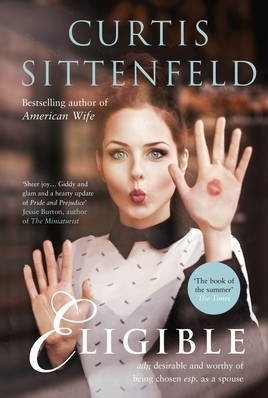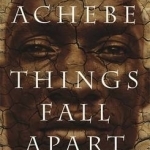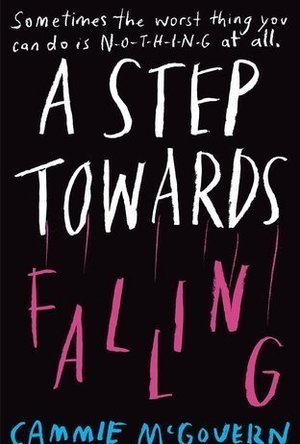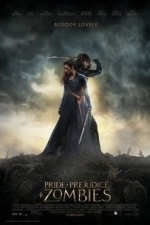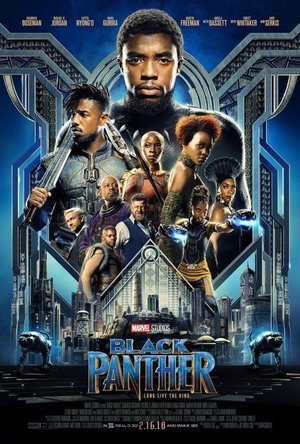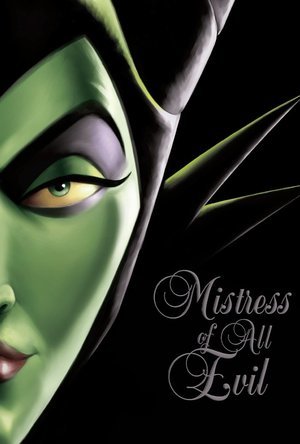Search
I understand that this is the fourth offering for 'The Austen Project' where well known authors (although I had not heard of Curtis Sittenfeld and thought she was a man, but hey.....) rewrite Austen's novels 'for a modern audience'. This does rather beg the question of if a modern reading audience does need 'dumbing down' to, as that's pretty much the implication. Trollope's Sense & Sensibility & McCall Smith's Emma have met with somewhat mixed feelings but I did think that Val McDermid worked magic with a modern retelling of Northanger Abbey. So far this is the only one to have altered the title from the original - perhaps the pressure of Pride & Prejudice was too much for anyone?
If there is a single book which as has more sequels, prequels, re-imaginings and modernisations than good old P&P then I have yet to meet it. Personally, I like to think Austen would be amused and possibly slightly bemused by it all. I'm guilty of heaving read my fair share of these, which quite often categorise as the good, the bad and the ugly! For me, this one wasn't bad, or indeed ugly, but it wasn't brilliant. It also felt that it was quite a bit longer than it needed to be. I know Kitty & Lydia are rather vulgar and embarrassing in the original but their behaviour here is really beyond the pale - who on earth would want to date Lydia if she behaves as she does here?
Some of the ideas are good, some things seem a bit contrived and over the top. I also found it quite American and slangy in places with some slang words or expressions leaving me somewhat in the dark but then I am a woman who can't bear Text Speak!
Overall, while it wasn't a bad read, it wasn't that great and I can't see myself reading it again.
If there is a single book which as has more sequels, prequels, re-imaginings and modernisations than good old P&P then I have yet to meet it. Personally, I like to think Austen would be amused and possibly slightly bemused by it all. I'm guilty of heaving read my fair share of these, which quite often categorise as the good, the bad and the ugly! For me, this one wasn't bad, or indeed ugly, but it wasn't brilliant. It also felt that it was quite a bit longer than it needed to be. I know Kitty & Lydia are rather vulgar and embarrassing in the original but their behaviour here is really beyond the pale - who on earth would want to date Lydia if she behaves as she does here?
Some of the ideas are good, some things seem a bit contrived and over the top. I also found it quite American and slangy in places with some slang words or expressions leaving me somewhat in the dark but then I am a woman who can't bear Text Speak!
Overall, while it wasn't a bad read, it wasn't that great and I can't see myself reading it again.
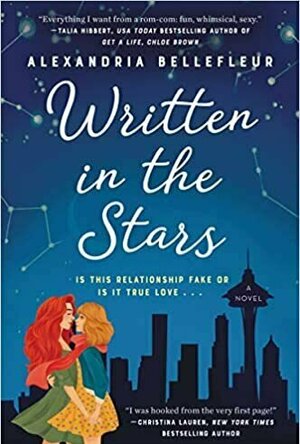
Written in the Stars
Book
"I was hooked from the very first page!” – Christina Lauren, New York Times bestselling author...
Janeeny (200 KP) rated Things Fall Apart in Books
Jun 10, 2019
I was very confused by February’s ‘Penguin Reading Challenge’, as I don’t think I got one. Their February newsletter did recommend ‘Pride and Prejudice’ as a valentine read so potentially that may have been my classic recommendation for the month, however I’ve already read that one so I decided this month to go for January’s second recommendation of Chinua Achebe’s ‘Things fall apart’.
I don’t really know how to summarise this book without giving a lot away so I’m going to rely on Amazon –
Okonowo is the greatest warrior alive. His fame has spread like a bushfire in West Africa and he is one of the most powerful men of his clan.
But he also has a fiery temper. Determined not to be like his father, he refuses to show weakness to anyone – even if the only way he can master his feelings is with his fists. When outsiders threaten the traditions of his clan, Okonowo takes violent action. Will the great man’s dangerous pride eventually destroy him?
Again a Classic that did actually engross me. At the risk of sounding like a complete heel I was expecting to be lectured to by this book. Usually with Historical literature books of such high acclaim we encounter a lot of hidden and profound messages about our place in the world and how we treat others and the story can feel a bit dry. Also, with the other Historical fiction based in other countries I’ve read, I’ve appreciated the story, but they have essentially been based around problems exclusive to that era and culture, so it’s not really something I can relate to.
So oddly enough this little book set within a Nigerian tribe in the 1890s was actually quite relatable. Ok so maybe not many people can relate to a situation where you and a group of other men lead your foster son to a dark forest and kill him, but we can relate to making hard choices in life and letting down the ones we love.
You know as soon as you meet Okonowo that things are not going to go well for him, he is a prideful man quick to anger. He mistreats his wives and has high expectations of his children, and his intentions whilst well-meaning for his family are also misguided. Okonowo lives in a very superstitious village, and you can see that, after Okonowo does something that a close friend warns him against, that things will start to go bad from there. Things do not end well for Okonowo, as he doesn’t seem to learn or heed the warnings around him, but in the end you do start to sympathise with him a bit.
I think the best way to summarise the events in ‘Things fall apart’ is that whilst Okonowo’s problems are steered by his tribe’s beliefs and superstitions they are in essence problems that are relatable around the world.
I don’t really know how to summarise this book without giving a lot away so I’m going to rely on Amazon –
Okonowo is the greatest warrior alive. His fame has spread like a bushfire in West Africa and he is one of the most powerful men of his clan.
But he also has a fiery temper. Determined not to be like his father, he refuses to show weakness to anyone – even if the only way he can master his feelings is with his fists. When outsiders threaten the traditions of his clan, Okonowo takes violent action. Will the great man’s dangerous pride eventually destroy him?
Again a Classic that did actually engross me. At the risk of sounding like a complete heel I was expecting to be lectured to by this book. Usually with Historical literature books of such high acclaim we encounter a lot of hidden and profound messages about our place in the world and how we treat others and the story can feel a bit dry. Also, with the other Historical fiction based in other countries I’ve read, I’ve appreciated the story, but they have essentially been based around problems exclusive to that era and culture, so it’s not really something I can relate to.
So oddly enough this little book set within a Nigerian tribe in the 1890s was actually quite relatable. Ok so maybe not many people can relate to a situation where you and a group of other men lead your foster son to a dark forest and kill him, but we can relate to making hard choices in life and letting down the ones we love.
You know as soon as you meet Okonowo that things are not going to go well for him, he is a prideful man quick to anger. He mistreats his wives and has high expectations of his children, and his intentions whilst well-meaning for his family are also misguided. Okonowo lives in a very superstitious village, and you can see that, after Okonowo does something that a close friend warns him against, that things will start to go bad from there. Things do not end well for Okonowo, as he doesn’t seem to learn or heed the warnings around him, but in the end you do start to sympathise with him a bit.
I think the best way to summarise the events in ‘Things fall apart’ is that whilst Okonowo’s problems are steered by his tribe’s beliefs and superstitions they are in essence problems that are relatable around the world.
Hazel (1853 KP) rated A Step Towards Falling in Books
Dec 14, 2018
Rating: 3.5
<i>This eBook was provided by the publisher via NetGalley in exchange for an honest review
A Step Towards Falling</i> by Cammie McGovern is a book full of important messages. As with a couple of her previous novels, McGovern writes about characters with developmental disabilities, i.e. Autism, focusing on the ways in which they interact with the world around them and vice versa. This particular story is written with teenagers in mind, featuring topics such as dating and future prospects.
One of the narrators Emily, along with high school football player Lucas, are being punished for not helping a disabled student when they witnessed her being assaulted. In order to appease the school they are subjected to forty hours of community service – voluntarily helping to run the Boundaries and Relationships class at the Lifelong Learning Centre. Here they meet a handful of people with disabilities who need help to identify what is and what is not acceptable in potential romantic relationships. Although Emily and Lucas initially think members of the group are strange, they soon learn to see through their quirks and admire them for their positive personalities.
The second narrator, Belinda, is the assaulted girl. To begin with she is no longer attending school as her grandmother has deemed it an unsafe place. Belinda describes her life with childlike innocence, naively believing she is like everyone else and not understanding why she never receives the same privileges, e.g. joining after school clubs, getting a job. Whilst she slowly regains her confidence to return to school, Emily and Lucas begin to enjoy working at the LLC, however continue to feel guilty, as they are aware that although they are doing a great job, it is not doing anything to make Belinda’s life better. So, they aim to change that.
Although relationships feature heavily in this novel, <i>A Step Towards Falling</i> is largely based on similar themes to Jane Austen’s <i>Pride and Prejudice</i> – incidentally Belinda’s favourite story. Each key character have their own prejudices towards other people and act as though they are better than everyone else. Emily instantly judges Lucas to be a popular, uneducated boy due to his position on the school football team. Likewise, Lucas judges Emily for hanging out with “nerdy” people who only care about grades and getting into good colleges. Belinda, despite being different due to her disability, believes she is better than other people in her class because she can read and use a computer, whereas many can barely string a sentence together.
What McGovern is stressing throughout this narrative is the importance of getting to know someone first instead of arrogantly assuming you know exactly what they are like based on appearance. As can be revealed in <i>Pride and Prejudice</i>, someone who appears rude and distant may actually have a lovely, kind and considerate personality. Emily and Lucas learn this quite quickly, and Belinda is not far behind them. It is a shame that not many other people are as swift to realize this.
Although <i>A Step Towards Falling</i> is a work of fiction it deals with issues that many high school students, and even adults, face even if they do not realize it. Football players are often presumed to be unintelligent, likewise clever, “nerdy” people may come across as distant and uncaring. The worst thing that most, if not all, are guilty of is the presupposed belief that developmentally disabled people are weird and to be avoided. This is entirely false, as McGovern reveals; they have the right to the same life as anyone else, the only difference is they may take longer to learn what comes naturally to most people.
As a novel, <i>A Step Towards Falling</i> is a fairly gentle read about completely realistic events. Although there are references to Belinda’s assault, there is nothing majorly distressing. On the other hand, it is a bit too plain sailing, with no climax to speak of. Through her attempt to create an accurate representation of disabled people, McGovern fails to grip the reader or create excitement. There is no suspense or anticipation, which unfortunately makes the book a little disappointing.
Overall the story line may not be the most thrilling however it has a powerful voice and a satisfying ending. All teenagers, and adults too, should read this book and become more mindful of their behaviour and prejudices. Naturally this is not something that will be easy to completely eradicate, but as this book reveals, once you are aware of your inaccurate impressions it become easier to accept people the way they are, and become confident in getting to know their true personality.
<i>This eBook was provided by the publisher via NetGalley in exchange for an honest review
A Step Towards Falling</i> by Cammie McGovern is a book full of important messages. As with a couple of her previous novels, McGovern writes about characters with developmental disabilities, i.e. Autism, focusing on the ways in which they interact with the world around them and vice versa. This particular story is written with teenagers in mind, featuring topics such as dating and future prospects.
One of the narrators Emily, along with high school football player Lucas, are being punished for not helping a disabled student when they witnessed her being assaulted. In order to appease the school they are subjected to forty hours of community service – voluntarily helping to run the Boundaries and Relationships class at the Lifelong Learning Centre. Here they meet a handful of people with disabilities who need help to identify what is and what is not acceptable in potential romantic relationships. Although Emily and Lucas initially think members of the group are strange, they soon learn to see through their quirks and admire them for their positive personalities.
The second narrator, Belinda, is the assaulted girl. To begin with she is no longer attending school as her grandmother has deemed it an unsafe place. Belinda describes her life with childlike innocence, naively believing she is like everyone else and not understanding why she never receives the same privileges, e.g. joining after school clubs, getting a job. Whilst she slowly regains her confidence to return to school, Emily and Lucas begin to enjoy working at the LLC, however continue to feel guilty, as they are aware that although they are doing a great job, it is not doing anything to make Belinda’s life better. So, they aim to change that.
Although relationships feature heavily in this novel, <i>A Step Towards Falling</i> is largely based on similar themes to Jane Austen’s <i>Pride and Prejudice</i> – incidentally Belinda’s favourite story. Each key character have their own prejudices towards other people and act as though they are better than everyone else. Emily instantly judges Lucas to be a popular, uneducated boy due to his position on the school football team. Likewise, Lucas judges Emily for hanging out with “nerdy” people who only care about grades and getting into good colleges. Belinda, despite being different due to her disability, believes she is better than other people in her class because she can read and use a computer, whereas many can barely string a sentence together.
What McGovern is stressing throughout this narrative is the importance of getting to know someone first instead of arrogantly assuming you know exactly what they are like based on appearance. As can be revealed in <i>Pride and Prejudice</i>, someone who appears rude and distant may actually have a lovely, kind and considerate personality. Emily and Lucas learn this quite quickly, and Belinda is not far behind them. It is a shame that not many other people are as swift to realize this.
Although <i>A Step Towards Falling</i> is a work of fiction it deals with issues that many high school students, and even adults, face even if they do not realize it. Football players are often presumed to be unintelligent, likewise clever, “nerdy” people may come across as distant and uncaring. The worst thing that most, if not all, are guilty of is the presupposed belief that developmentally disabled people are weird and to be avoided. This is entirely false, as McGovern reveals; they have the right to the same life as anyone else, the only difference is they may take longer to learn what comes naturally to most people.
As a novel, <i>A Step Towards Falling</i> is a fairly gentle read about completely realistic events. Although there are references to Belinda’s assault, there is nothing majorly distressing. On the other hand, it is a bit too plain sailing, with no climax to speak of. Through her attempt to create an accurate representation of disabled people, McGovern fails to grip the reader or create excitement. There is no suspense or anticipation, which unfortunately makes the book a little disappointing.
Overall the story line may not be the most thrilling however it has a powerful voice and a satisfying ending. All teenagers, and adults too, should read this book and become more mindful of their behaviour and prejudices. Naturally this is not something that will be easy to completely eradicate, but as this book reveals, once you are aware of your inaccurate impressions it become easier to accept people the way they are, and become confident in getting to know their true personality.
Emma @ The Movies (1786 KP) rated Pride and Prejudice and Zombies (2016) in Movies
Sep 25, 2019
A film for all those women who dream of chivalry, but want to kick some ass.
Contains spoilers, click to show
"It is a truth universally acknowledged that a zombie in possession of brains must be in want of more brains."
A mysterious plague has fallen across England. The countryside is a relative haven, where the city has become a playground for unmentionables. The oriental arts have become the fashion and a desirable young lady no longer needs to be the prim and proper wife, unless your name is Mr Collins.
The Bennet's lovely daughters, beautiful and strong of body and mind are accustomed to a regimented life of training, until the handsome stranger Mr Bingley comes to the country. A whirlwind of romance and the undead lead them into a battle for family and love.
Heaving bosoms, country estates. Brain eating corpses and assorted weaponry. Everything you'd expect when the undead meets Jane Austen. As if on cue my playlist has shuffled to Zombie by The Cranberries. I can't deny enjoying this film, I should point out that I was always going to enjoy it, be it Oscar or Razzie worthy. It definitely had the potential to be an epic re-watchable classic or the B-movie winner that shone from the book.
When it was first published I picked it up almost instantly and soon found Quirk Books and other crossover books developing a little shrine-like area. [Now given pride of place in my nerd room.] Having a dislike of classics embedded in me from school and enjoying the general kick-assery of action films, it was a great crossover to bring those classics back into my life.
Admission time, while I've read the book I can't actually remember when, it was dozens of books ago. I loved it but not everyone did. I'm going to make a big sweeping statement. [Sorry, not sorry] It's not a Jane Austen book people, get over it. "He's ruined Elizabeth Bennet!" No he's taken a strong minded female character and put her in a new fantasy setting. I'm sure there would have been less objections if all the names were different (and the title too) and it was just described as "loosely based on Jane Austen's Pride and Prejudice". But swings and roundabouts, because it probably wouldn't have been as popular if it wasn't called Pride and Prejudice and Zombies.
Sam Riley's Mr Darcy was no Colin Firth, but it was still very good. It did kind of seem like they threw him in a lake because they felt they should pay homage to Firth's dunking.
Note to those who see the film, Liz Bennet's heaving bosom is seen on a regular basis and is entirely distracting. I'm not sure there's a plot line linked to them, they're just always there, they probably should have got their own credit for the part.
I think my favourite scene was where Darcy came to Elizabeth to proclaim his love... and then they proceed to beat each other with sticks, books, basically whatever is to hand. Heated and packed with sexual tension it made for entertaining viewing. It also reminded me of the scene in Buffy where the slayer and Spike fight in an abandoned building, and the amount of sexual tension between the pair results in breaking the building, amongst other things... but those other things probably wouldn't work so well in Austen's time.
Even with all the bits that brought a smile to my face and made for enjoyable watching, there were some things I couldn't help but be annoyed with.
Firstly, Matt Smith, my dear number 11... [insert long silence here] I know Mr Collins is there for the annoying comic relief and awkwardness but oh my god. It was too much and I was overcome with annoyance. The cast is made up of relatively unknown people, with the exceptions of Charles Dance, Sally Phillips and Matt Smith. I can't help but wonder if Mr Collins would have been easier to deal with if he was an unknown actor.
The camera work had its own peculiarities. Some shots were taken from the zombies point of view. They were blurred and frustrating to watch, I can't really tell what it added. I'm sure it would have added a bit more drama if you'd seen the potential victim being run at. Again, I'm not an expert in showbiz filming but I'm fairly certain that making your audience want to throw up is not the idea. Right near the end there is a shot that perfectly portrays the devastation of the situation...
"How should we get across the devastation of the city and cut out to the next scene?"
"Spin the camera round until people want to vomit?"
"GENIUS!"
I sat there feeling a bit woozy, trying to avoid looking at the screen for the whole thing. I'm not sure either of the fancy styles really improved anything.
My only other wonder about the film is whether it should have gone all out spoof. This was a sensible spoof [relatively speaking], in that it wasn't made specifically for laughs. It did have some, but there were also some moments of emotion too. Should they have played the film out for more comedy? Who knows, but I feel the scene where Darcy and Elizabeth are stabbing a field to kill zombies that are buried underneath was completely wasted in a sensible spoof!
All in all I did enjoy it, but for those of you looking to see it at the cinema I'm not sure it's worth a £10 ticket. Well worth it if you have an offer of some description though. Just remember going in to it that it isn't Jane Austen, it's just your run of the mill zombie period drama... wow, never thought I'd say that sentence.
A mysterious plague has fallen across England. The countryside is a relative haven, where the city has become a playground for unmentionables. The oriental arts have become the fashion and a desirable young lady no longer needs to be the prim and proper wife, unless your name is Mr Collins.
The Bennet's lovely daughters, beautiful and strong of body and mind are accustomed to a regimented life of training, until the handsome stranger Mr Bingley comes to the country. A whirlwind of romance and the undead lead them into a battle for family and love.
Heaving bosoms, country estates. Brain eating corpses and assorted weaponry. Everything you'd expect when the undead meets Jane Austen. As if on cue my playlist has shuffled to Zombie by The Cranberries. I can't deny enjoying this film, I should point out that I was always going to enjoy it, be it Oscar or Razzie worthy. It definitely had the potential to be an epic re-watchable classic or the B-movie winner that shone from the book.
When it was first published I picked it up almost instantly and soon found Quirk Books and other crossover books developing a little shrine-like area. [Now given pride of place in my nerd room.] Having a dislike of classics embedded in me from school and enjoying the general kick-assery of action films, it was a great crossover to bring those classics back into my life.
Admission time, while I've read the book I can't actually remember when, it was dozens of books ago. I loved it but not everyone did. I'm going to make a big sweeping statement. [Sorry, not sorry] It's not a Jane Austen book people, get over it. "He's ruined Elizabeth Bennet!" No he's taken a strong minded female character and put her in a new fantasy setting. I'm sure there would have been less objections if all the names were different (and the title too) and it was just described as "loosely based on Jane Austen's Pride and Prejudice". But swings and roundabouts, because it probably wouldn't have been as popular if it wasn't called Pride and Prejudice and Zombies.
Sam Riley's Mr Darcy was no Colin Firth, but it was still very good. It did kind of seem like they threw him in a lake because they felt they should pay homage to Firth's dunking.
Note to those who see the film, Liz Bennet's heaving bosom is seen on a regular basis and is entirely distracting. I'm not sure there's a plot line linked to them, they're just always there, they probably should have got their own credit for the part.
I think my favourite scene was where Darcy came to Elizabeth to proclaim his love... and then they proceed to beat each other with sticks, books, basically whatever is to hand. Heated and packed with sexual tension it made for entertaining viewing. It also reminded me of the scene in Buffy where the slayer and Spike fight in an abandoned building, and the amount of sexual tension between the pair results in breaking the building, amongst other things... but those other things probably wouldn't work so well in Austen's time.
Even with all the bits that brought a smile to my face and made for enjoyable watching, there were some things I couldn't help but be annoyed with.
Firstly, Matt Smith, my dear number 11... [insert long silence here] I know Mr Collins is there for the annoying comic relief and awkwardness but oh my god. It was too much and I was overcome with annoyance. The cast is made up of relatively unknown people, with the exceptions of Charles Dance, Sally Phillips and Matt Smith. I can't help but wonder if Mr Collins would have been easier to deal with if he was an unknown actor.
The camera work had its own peculiarities. Some shots were taken from the zombies point of view. They were blurred and frustrating to watch, I can't really tell what it added. I'm sure it would have added a bit more drama if you'd seen the potential victim being run at. Again, I'm not an expert in showbiz filming but I'm fairly certain that making your audience want to throw up is not the idea. Right near the end there is a shot that perfectly portrays the devastation of the situation...
"How should we get across the devastation of the city and cut out to the next scene?"
"Spin the camera round until people want to vomit?"
"GENIUS!"
I sat there feeling a bit woozy, trying to avoid looking at the screen for the whole thing. I'm not sure either of the fancy styles really improved anything.
My only other wonder about the film is whether it should have gone all out spoof. This was a sensible spoof [relatively speaking], in that it wasn't made specifically for laughs. It did have some, but there were also some moments of emotion too. Should they have played the film out for more comedy? Who knows, but I feel the scene where Darcy and Elizabeth are stabbing a field to kill zombies that are buried underneath was completely wasted in a sensible spoof!
All in all I did enjoy it, but for those of you looking to see it at the cinema I'm not sure it's worth a £10 ticket. Well worth it if you have an offer of some description though. Just remember going in to it that it isn't Jane Austen, it's just your run of the mill zombie period drama... wow, never thought I'd say that sentence.
Deborah (162 KP) rated Murder at Mansfield Park (Charles Maddox #1) in Books
Dec 21, 2018
The Austen sequel or entertainment is an not uncommon beast these days, even if Pride & Prejudice is more usually the chosen book. As the title might give you a clue - this one relates more to Mansfield Park.
The major characters from the Austen novel are all there in name, but characters and relationships have been seriously altered. The first third of the book is mainly made up of recycled dialogue and narrative from Mansfield Park, but not necesarily in the same order. Mr Rushworth's character is changed to be more like Henry Crawford (and he is given the 'black and plain' description belonging to him in the novel) crossed with Robert Ferrars, so it seems odd when he is given dialogue beloning to the Mr Rushworth of the original novel, although not perhaps as strange when Mrs Norris is found spouting his lines.....
Fanny Price moves to become a rich heiress and the eldest of the female cousins; her character is more like the Maria of the book crossed with Lucy Steele and Caroline Bingley! Maria becomes more like the Julia of the book and Julia becomes more like the Fanny of the novel crossed with Marianne Dashwood - got that yet?! Henry Crawford here I don't really know - I'm not sure we got a proper description, so he does seem a bit of a cipher.
It's not a bad book, but with the murders I found it all rather unpleasant - I prefer such things to be more about the solving of the mystery than the incident itself, and here we have so few characters who could have committed the crime I didn't feel like I was waiting with baited breath for the conclusion (it's not Pug, in case you were worried.....). some characters were so underdeveloped it was rather obvious that they wouldn't have been involved. I do feel that having made so many changes, Lynn Shepherd would have been better off writing her own, original novel; one can't help but feel she has used Austen just to sell her book whereas her original dialogue does suggest that she could allow her writing to stand on its own merits.
The major characters from the Austen novel are all there in name, but characters and relationships have been seriously altered. The first third of the book is mainly made up of recycled dialogue and narrative from Mansfield Park, but not necesarily in the same order. Mr Rushworth's character is changed to be more like Henry Crawford (and he is given the 'black and plain' description belonging to him in the novel) crossed with Robert Ferrars, so it seems odd when he is given dialogue beloning to the Mr Rushworth of the original novel, although not perhaps as strange when Mrs Norris is found spouting his lines.....
Fanny Price moves to become a rich heiress and the eldest of the female cousins; her character is more like the Maria of the book crossed with Lucy Steele and Caroline Bingley! Maria becomes more like the Julia of the book and Julia becomes more like the Fanny of the novel crossed with Marianne Dashwood - got that yet?! Henry Crawford here I don't really know - I'm not sure we got a proper description, so he does seem a bit of a cipher.
It's not a bad book, but with the murders I found it all rather unpleasant - I prefer such things to be more about the solving of the mystery than the incident itself, and here we have so few characters who could have committed the crime I didn't feel like I was waiting with baited breath for the conclusion (it's not Pug, in case you were worried.....). some characters were so underdeveloped it was rather obvious that they wouldn't have been involved. I do feel that having made so many changes, Lynn Shepherd would have been better off writing her own, original novel; one can't help but feel she has used Austen just to sell her book whereas her original dialogue does suggest that she could allow her writing to stand on its own merits.
Ryan Hill (152 KP) rated Black Panther (2018) in Movies
May 11, 2019
"Bury me in the ocean with my ancestors who jumped from the ships, 'cause they knew death was better than bondage"
Full of life, joy, sorrow, and hilarity; Ryan Coogler's Black Panther just has a vibrancy you rarely find in the superhero scene, let alone blockbusters. Enriched with a deep, abiding love for African culture and Afrofuturism; the movie just feels purposeful. Important. Meaningful. Context matters here, as Black Panther will become one of very few films populated by African Americans not dealing with slavery or black history to thrive financially. And that cast is phenomenal. Boseman's soft-spoken panther-of-few-words is the rare MCUer to opt for a moment of silence rather than a snarky comment. Michael B Jordan brings an unmistakable swagger to the perpetually weak slate of Marvel villains, conveying a crushingly sad and challenging story that could just as easily be regarded as the true hero of the film. Letitia Wright as the genius tech maestro was a blast, a character who could give Tony Stark a run for his money both technologically and charismatically. And these are just three of Coogler's creations; drawn from a slate of inspired, unique and wonderfully represented roles for black actors...many of whom will deservingly use this as a career springboard of sorts.
I remember years ago I read a book about the cultural significance of various comic book locales, and the Wakanda entry struck me as uniquely sad and inspiring. Wakanda, a place busting with innovation, tradition, and pride...hidden from the world. Sort of an alternate-timeline Africa which wasn't poisoned irreparably by colonialism and all its horrors. There's a sad duality obvious in this Wakanda, that being for it to exist, it must be hidden. Must be quietly nurtured, developed and treasured. It's an apt metaphor in relation to black pride, culture, and history; something constantly being reworked, reshaped and reimagined to put a sordid past (and present) in the rear-view mirror by those who perpetrate it, knowingly or not. This idea, that for something to thrive it must be isolated, is at the heart of Black Panther. You can understand why T'Challa, and generations before him, sacrificed anything to preserve the myth of Wakanda. But you can also understand Killmonger's feeling of betrayal. The profound moral objections inherent in a small community turning it's back on a larger suffering population in the name of self-preservation. There's no heroes and villains when Black Panther is at it's best, just two sides to a terrifying moral question *loaded* with historical weight.
Because Killmonger isn't really a villain. The best illustration of this is the contrasting "dream" sequences, in which T'Challa shares a promise with his father within a transcendentally beautiful African landscape, and Killmonger is confronted by all his pain, suffering and moral rigidity in the vast concrete jungle of Oakland, in the tiny apartment where his father was murdered for trying to make a difference. They both wake up with tears in their eyes, some from pain and some from catharsis. Coogler marks the chasm between T'Challa's and Killmonger's pasts so perfectly, and illustrates exactly why they feel the way they do with such wisdom. Black Panther so clearly empathizes with Killmonger and understands where his pain was born, and the horrors that nurtured it.
And so there's no hero and no villain to this movie. Just two men in nearly identical black panther suits, clashing over how Wakanda ought to venture into a new era. Nobility and passion, conservation and sacrifice, incremental change against a vengeful redistribution of power and oppression. Both men are correct in their aspirations, being "right" here doesn't matter. it's tough for a good man to be king. Killmonger made T'Challa the hero he is, by instilling in him a mission, a perceived duty to turn around, face an oppressed people and finally lend a hand. But more than that, there's something miraculous here. An apology from a good man. A recognition of a sin even when it's perpetrator was, until now, helpless to prevent it. A declaration that not contributing to hate and prejudice doesn't equate to actively working to prevent it. A plea for a humble brand of superheroism, for countless ghosts of the past to be heard and change to erupt in their name. Divides to be bridged, chasms to be crossed and wrongs to be righted.
Black Panther has a complex, meaningful and profoundly challenging thematic framework; offering a fresh dissection of what it means to grapple with the sins of those who came before. Sure, there are some technical issues along the way, the machinations of Marvel storytelling are evident and errors could be found; but if you understand that superhero stories were meant to ask these sorts of questions and push boundaries since their inception; Black Panther is a dream.
I remember years ago I read a book about the cultural significance of various comic book locales, and the Wakanda entry struck me as uniquely sad and inspiring. Wakanda, a place busting with innovation, tradition, and pride...hidden from the world. Sort of an alternate-timeline Africa which wasn't poisoned irreparably by colonialism and all its horrors. There's a sad duality obvious in this Wakanda, that being for it to exist, it must be hidden. Must be quietly nurtured, developed and treasured. It's an apt metaphor in relation to black pride, culture, and history; something constantly being reworked, reshaped and reimagined to put a sordid past (and present) in the rear-view mirror by those who perpetrate it, knowingly or not. This idea, that for something to thrive it must be isolated, is at the heart of Black Panther. You can understand why T'Challa, and generations before him, sacrificed anything to preserve the myth of Wakanda. But you can also understand Killmonger's feeling of betrayal. The profound moral objections inherent in a small community turning it's back on a larger suffering population in the name of self-preservation. There's no heroes and villains when Black Panther is at it's best, just two sides to a terrifying moral question *loaded* with historical weight.
Because Killmonger isn't really a villain. The best illustration of this is the contrasting "dream" sequences, in which T'Challa shares a promise with his father within a transcendentally beautiful African landscape, and Killmonger is confronted by all his pain, suffering and moral rigidity in the vast concrete jungle of Oakland, in the tiny apartment where his father was murdered for trying to make a difference. They both wake up with tears in their eyes, some from pain and some from catharsis. Coogler marks the chasm between T'Challa's and Killmonger's pasts so perfectly, and illustrates exactly why they feel the way they do with such wisdom. Black Panther so clearly empathizes with Killmonger and understands where his pain was born, and the horrors that nurtured it.
And so there's no hero and no villain to this movie. Just two men in nearly identical black panther suits, clashing over how Wakanda ought to venture into a new era. Nobility and passion, conservation and sacrifice, incremental change against a vengeful redistribution of power and oppression. Both men are correct in their aspirations, being "right" here doesn't matter. it's tough for a good man to be king. Killmonger made T'Challa the hero he is, by instilling in him a mission, a perceived duty to turn around, face an oppressed people and finally lend a hand. But more than that, there's something miraculous here. An apology from a good man. A recognition of a sin even when it's perpetrator was, until now, helpless to prevent it. A declaration that not contributing to hate and prejudice doesn't equate to actively working to prevent it. A plea for a humble brand of superheroism, for countless ghosts of the past to be heard and change to erupt in their name. Divides to be bridged, chasms to be crossed and wrongs to be righted.
Black Panther has a complex, meaningful and profoundly challenging thematic framework; offering a fresh dissection of what it means to grapple with the sins of those who came before. Sure, there are some technical issues along the way, the machinations of Marvel storytelling are evident and errors could be found; but if you understand that superhero stories were meant to ask these sorts of questions and push boundaries since their inception; Black Panther is a dream.
Lottie disney bookworm (1056 KP) rated Mistress of All Evil: A Tale of the Dark Fairy (Villains #4) in Books
Sep 28, 2019
YES SERENA!
Mistress of Evil is precisely the book I wanted from the villain’s tales series: it had everything – an intriguing backstory; familiar characters as well as new ones who were pivotal to the plot; and of course, magic.
I couldn’t put this book down and I am so relieved that I can finally be super positive for the first time since Fairest of All.
Mistress of Evil takes place immediately after Poor Unfortunate Soul (these books have an order for a reason people!) and, with the odd sisters temporarily out of action, we learn that Maleficent must appeal to Circe and Nanny for assistance with a spell. However, it is soon revealed that Nanny, Maleficent and the odd sisters share a history.
What I loved most about this book is that Valentino spends a lot of time in Maleficent’s backstory, and it was evident that she took a lot of pride in the younger fairy she created. Maleficent is not 100% bad. Don’t get me wrong, she isn’t 100% good either, but the reader witnesses the circumstances that have made her this way. We observe abandonment, bullying and rejection but overall we witness prejudice against someone who is different and I feel it is this that really humanises Maleficent.
Familiar characters are also introduced; namely Flora, Fauna and Merryweather. Now, Merryweather has always been my favourite of the three fairies: something about her sarcastic and feisty personality calls to me. However, young Merryweather is a bit of a cow and, although I didn’t want to, I loved this twist. As usual, Valentino’s world is not black and white: if the good fairies had always been good, events may have turned out very differently.
Snow and her mother also play a role in the progression of the underlying story throughout all these tales: the one of the odd sisters. It wasn’t a complete surprise that Valentino brings one of her previous characters into the story, after all each tale has led into the next. However, it was really interesting to meet Queen Snow and glimpse at her life since we left her in Fairest of All. Also, a book from the odd sisters that possibly binds all our heroes and villains together is pure genius- particularly for someone who was obsessed with Once Upon a Time.
The level of detail in Valentino’s writing is superb. You can really picture the village in which Maleficent was raised- an experience that I haven’t felt in the previous tales. She also doesn’t neglect Aurora just because she is asleep but creates a dream world of mirrors that for some reason conjured images of Labyrinth for me. I also appreciated that, although snippets of the original story are included, they are just snippets- not a retelling.
I think it’s pretty clear that I loved this book. It wasn’t perfect (I still just don’t “get” Tulip and Popinjay and the timing at the start of the book was confusing) but it was pretty close! A prequel to Sleeping Beauty, complete with a fairy school, tree lords, dream worlds and fallouts that would make Jeremy Kyle wince? What more could you want?
A MASSIVE twist? You got it! I always knew no-one would be that angry over not being invited to a christening….
Mistress of Evil is precisely the book I wanted from the villain’s tales series: it had everything – an intriguing backstory; familiar characters as well as new ones who were pivotal to the plot; and of course, magic.
I couldn’t put this book down and I am so relieved that I can finally be super positive for the first time since Fairest of All.
Mistress of Evil takes place immediately after Poor Unfortunate Soul (these books have an order for a reason people!) and, with the odd sisters temporarily out of action, we learn that Maleficent must appeal to Circe and Nanny for assistance with a spell. However, it is soon revealed that Nanny, Maleficent and the odd sisters share a history.
What I loved most about this book is that Valentino spends a lot of time in Maleficent’s backstory, and it was evident that she took a lot of pride in the younger fairy she created. Maleficent is not 100% bad. Don’t get me wrong, she isn’t 100% good either, but the reader witnesses the circumstances that have made her this way. We observe abandonment, bullying and rejection but overall we witness prejudice against someone who is different and I feel it is this that really humanises Maleficent.
Familiar characters are also introduced; namely Flora, Fauna and Merryweather. Now, Merryweather has always been my favourite of the three fairies: something about her sarcastic and feisty personality calls to me. However, young Merryweather is a bit of a cow and, although I didn’t want to, I loved this twist. As usual, Valentino’s world is not black and white: if the good fairies had always been good, events may have turned out very differently.
Snow and her mother also play a role in the progression of the underlying story throughout all these tales: the one of the odd sisters. It wasn’t a complete surprise that Valentino brings one of her previous characters into the story, after all each tale has led into the next. However, it was really interesting to meet Queen Snow and glimpse at her life since we left her in Fairest of All. Also, a book from the odd sisters that possibly binds all our heroes and villains together is pure genius- particularly for someone who was obsessed with Once Upon a Time.
The level of detail in Valentino’s writing is superb. You can really picture the village in which Maleficent was raised- an experience that I haven’t felt in the previous tales. She also doesn’t neglect Aurora just because she is asleep but creates a dream world of mirrors that for some reason conjured images of Labyrinth for me. I also appreciated that, although snippets of the original story are included, they are just snippets- not a retelling.
I think it’s pretty clear that I loved this book. It wasn’t perfect (I still just don’t “get” Tulip and Popinjay and the timing at the start of the book was confusing) but it was pretty close! A prequel to Sleeping Beauty, complete with a fairy school, tree lords, dream worlds and fallouts that would make Jeremy Kyle wince? What more could you want?
A MASSIVE twist? You got it! I always knew no-one would be that angry over not being invited to a christening….

English Audio Books - Librivox
Book and Education
App
English Audiobooks - Librivox Learn English by reading and listening to "Audiobooks". If you know...
